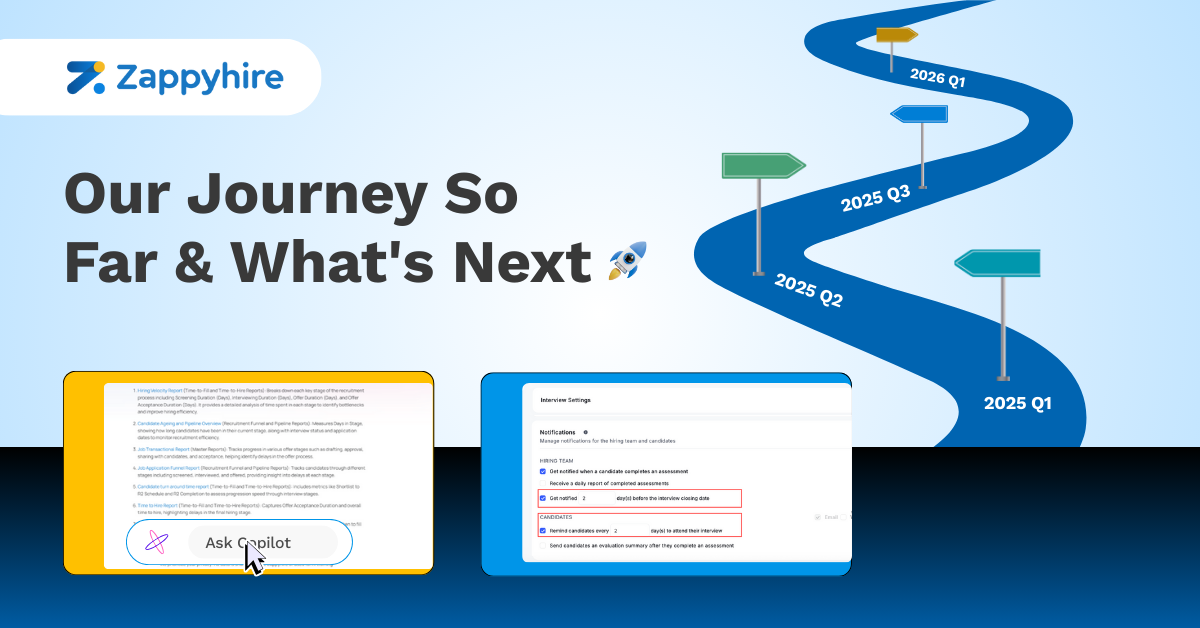
What is Moonlighting?
Moonlighting has now become an interesting topic in the world of work. Moonlighting is a term used to describe the second (or more) job that professionals have in addition to their primary job. Moonlighting has become quite popular in recent years due to the rise of online marketing, work-from-home options, and small business opportunities available to anyone with an idea and some hustle.
How viable is it?
The concept of moonlighting is not foreign to us. We have all heard stories of people who worked two jobs at one time in order to earn more money. In fact, they were once praised, looked upon favorably and appreciated for their hard work and ambition. Moonlighting can be an option for anyone who wants to make extra money or explore other options, regardless of age or financial situation.
While this may seem like a good way to put some extra cash in your pocket, it comes with its own complications. In this article, let’s explore both sides of the coin (and more), so that you can decide if moonlighting is right for you or not.
Why do people do it?
Moonlighting is an option for you if:
- You want to earn extra income. Moonlighting can help you make more money, which can be used for many different things. For example, you could use it to pay off debt or save for an early retirement.
- You need a change of scenery. Working the same job day in and day out can get boring and repetitive; moonlighting gives you the chance to try something new and challenge yourself.
- You’re interested in exploring new fields. You might have a passion or curiosity in a domain that you’ve never gotten the chance to work in, and would want to do it without giving up your current position.
Why some companies oppose employee moonlighting
In recent times, companies like Wipro, Infosys, IBM etc., have laid off hundreds of employees who had a secondary job. While some CEOs insist moonlighting is “cheating”, some state that it’s better if employees seek permission before taking up an additional job.
If you’ve ever asked for permission to moonlight, you know how the conversation goes: You ask your boss for their blessing, and they reply with a list of reasons why you should not do it. There are four common reasons that employers oppose their employees’ moonlighting:
1. Employers feel insecure
One of the biggest reasons employers oppose moonlighting is that they feel their employees will drift away from them. They worry that employees will be distracted from their primary job by side projects, become less invested in their company’s goals and ultimately leave to work on their own projects full-time.
Employers also fear that other employees might get ‘influenced’ by moonlighters, which could lead to more employees taking up second jobs which could lead to a decline in the overall efficiency or effectiveness.
2. Moonlighting employees may withhold their best ideas
Some employers worry that their employees will withhold their best ideas if they work in a similar position.
Employees may not want to share their best ideas in their primary place of employment and would want to experiment and be more creative in their side gig. While this can partly be beneficial to the primary employer because they will get the tried and tested ideas, this can lead to a decrease in originality and innovation.
3. Companies worry about liability, confidentiality and legal issues.
Employers can be worried about liability for the company, for the employee and even for third parties. Employers want to ensure that moonlighting won’t negatively impact their business or employees.
For example, if an employee is working in the same or similar industry with confidential information from their employer, this could be a problem. It’s also important to protect against the spread of confidential information when an employee has access to sensitive information at work and then brings it home with them on a personal device or computer and works on the second job from the same device.
In addition, some employers have non-compete agreements that prevent employees from working for competitors after they leave the company – and consider anything that would interfere with that as moonlighting.
4. Companies worry about data breaches
Data breaches are more prevalent than ever before, and they can be costly to both businesses and individuals. Even if an employee does not willingly disclose confidential information, they (their gadgets) might be more prone to become a target of cyberattacks, as they could pose an opening for such an attack. According to the Ponemon’s Cost of a Data Breach Study, the average cost for each record breached is $141. The average total cost of an incident is $3.62 million, which includes:
- Legal fees related to breach notification
- Remediation costs (i.e., fixing systems)
- Replacement costs for hardware or software that was hacked
There are risks involved in allowing your employees to moonlight, but it can also be beneficial for everybody involved
As an employer, you’ve probably had to contend with the question of whether or not you should allow your employees to moonlight. On one hand, it can help with employee retention by offering them additional opportunities that they couldn’t find in their day jobs. On the other hand, it can cause burnout and distract employees from doing their work during regular business hours.
It’s important to consider both sides when making this decision – but if done right, moonlighting can be beneficial for everybody involved.
For example: Moonlighting employees bring new perspectives and skills to the existing operations of your company; you’ll benefit from their experience in other industries, as they will offer fresh insights into what is needed at your company too!
The Benefits of Moonlighting
Moonlighting is a great way to make more money than your day job. If you’re looking for a little extra cash, this can be an excellent way to get it. Moonlighting will also allow you more freedom to choose to work when and where you want, so if there are certain times of day or days of the week that are better suited, you’ll get the flexibility to take advantage of those opportunities.
1. More money

Moonlighting gives you the opportunity to pursue something more lucrative than what you do for work every single day. You don’t have to quit your current job; instead, just find something else that pays well enough so that it makes sense, financially speaking.
2. New people and opportunities

Moonlighting gives you the chance to meet new people and form relationships with them. You can meet, work with and socialize with new people at your second job, which will allow you to broaden your social and professional circle.
3. A chance to break out of a rut
You’ll get the chance to try out different jobs in order to find something that you really enjoy doing. You might not have been able to afford taking a few years off from work in order to try out new things or learn about other industries before committing yourself full-time; but with moonlighting, there’s no need for such drastic measures!
4. Fresh skills and perspectives
A major benefit to moonlighting is that you can use your spare time to learn new skills and perspectives. You can take a class, pick up a new hobby or pursue an interest that’s been on the back burner for awhile. You may also discover something about yourself in this process. For example, maybe you’ll realize your true calling and change careers!
5. You’ll learn new skills that could help you advance in your career

Moonlighting is a great way to gain new skills, experience and make yourself more employable. By doing something different from your day job, you can:
- Learn how to do something entirely new (or something very similar). Moonlighting exposes you to new types of work and gives you an opportunity to try out new skills in a low-risk environment. You might find that what you think is an unlikely career move could be the perfect fit for your personality and interests!
- Gain valuable experience from a different industry. Moonlighting can give you insight into other industries so that when it comes time for promotions or raises at your current company, they’ll see that the skills gained during moonlighting translate well into what’s needed at their company too!
- Develop cross-functional knowledge within one organization or across several organizations depending on what type of work you do – this helps you understand how things work together rather than being limited by only knowing about one specific function within an organization which may only exist within one department/unit.
6. You’ll gain opportunities for personal growth

You’ll be pushed to learn new skills, manage your time better and become more organized, which will make you more competent in other areas of life. Moonlighting also requires that you work harder than you would at your day job, so if you’re looking for a challenge and a chance to improve yourself, this is it!
On the other hand, if all this talk of personal growth sounds like too much work or discipline for you (and who can blame you?) then maybe moonlighting isn’t right for your lifestyle right now. Which brings us to the drawbacks of moonlighting:
The Drawbacks of Moonlighting
As with most things in life, there are cons to moonlighting too. Conflict between the jobs, both in terms of subject matter and schedule, can’t be ignored.
Moonlighting is a great way to make some extra money and get different experiences at the same time. However, there are some downsides that you should be aware of before you start. You might not be able to do it full-time or at all, depending on your situation and what kind of moonlighting job you’re pursuing. There are also times when working as a moonlighter can create problems for your focus on other aspects of your life and career.
1. Burnout and exhaustion
The main downside of moonlighting is the risk of burnout, which can lead to poor performance. Employees who are burned out are more likely to have conflicts with their co-workers, miss deadlines and perform poorly on the job.
Burnout is not the same thing as exhaustion – which is when you’re physically tired but still able to function well enough at work or in your personal life. Burnout usually occurs when there’s an imbalance between energy and output; you’re working too much or not taking enough breaks during the day, so your motivation starts to dip lower and lower until you become exhausted by all of your obligations (work-related or otherwise).
If this sounds like something that might be happening in your own life right now, it may be time for some good old-fashioned self-care. Take a break from work when necessary; go for walks outside or take up meditation – and absolutely not a second job!
2. Working a second job can be physically taxing
Moonlighting can have a negative impact on your health, especially if it involves physically challenging work. If you don’t have time to exercise, eat well, get enough sleep and take care of your mental health, the physical side effects could be dangerous.
For instance: If you’re working at 3am and sleeping during the day, your body will not be able to regulate its internal clock as efficiently as it would normally. This means that even if you are getting enough sleep overall – 8 hours – your body will still feel tired when it should be awake (and vice versa).
You might find yourself falling asleep at your primary work because of this imbalance in circadian rhythms. This is particularly true for people who do shift work or long hours on end without taking vacations; meanwhile those who do take regular breaks from their jobs may find themselves feeling more alert because they’re allowing their bodies’ natural cycles some time off too!
3. Your time becomes more valuable, but you have less of it to use
This is one of the most obvious tradeoffs that comes with moonlighting. Working extra hours in your second job means that you have less time for everything else. You may need to cut back on family time, leisure activities, etc.
You might feel like your time is being stretched thin as you try to juggle all of your responsibilities.
4. You’ll have to be strict about setting boundaries in your life
When you’re moonlighting, you’re going to have to be strict about setting boundaries in your life. You should avoid overcommitting yourself and avoid taking on too much at once.
Also, remember that when you’re moonlighting it can be easy to spread yourself too thin when it comes to projects or responsibilities – don’t let this happen! Make sure everything is organized so that nothing falls through the cracks while still giving yourself time off from all this extra work.
5. You may find yourself doing too much for not enough reward
Moonlighting is a great way to try something new, earn extra income and gain valuable experience. But it can also be a lot of work for not enough reward. Before you decide to moonlight, make sure you consider the following:
- The time you spend on the job. Since you’re doing two jobs at once, there are more demands on your time than if you were only working one job. And sometimes the demands can be significant – for example, if one job requires that you work weekends while another doesn’t require weekend hours at all.
- The money you earn from each side hustle. You may find yourself doing too much for not enough reward when it comes to earning money as a result of moonlighting (e.g., less pay per hour because of your freelancer status); and not to mention that there will be no perks and other benefits.
6. Potential long-term negative impacts on the relationship with your employer and co-workers
If you’re an employee moonlighting without your employer’s knowledge and consent, you may be risking more than just a few hours of work outside the office. Employers have a lot riding on their employees’ professional reputations and performance; they need to be able to trust that the people working for them are present, focused, and engaged during business hours.
If employers find out that one of their workers is doing freelance work on company time, they might lose trust in that person – and if it becomes apparent that this is being done regularly or repeatedly (or even accidentally), it could lead to termination or even legal action.
It’s also possible that other employees will learn about your moonlighting activities and express disapproval; if this causes tension among coworkers who feel like they’re being treated unfairly compared to someone who has extra money coming in from outside sources (because – human nature), it can seriously damage morale at work as well as hurt future employment opportunities within the same organization (or elsewhere).
How to Move Forward
While there are no clear guidelines as to what constitutes “bad” moonlighting, most people would agree that working for a company that directly competes with your employer is against policy and unethical.
Also, if you work for a small company, it’s unlikely your boss will know if you have another job – but if you work for an established organization with strict policies against moonlighting, it’s best to avoid taking on any extra work.
The bottom line is that if your employer does not have a policy about moonlighting and you want to take on other projects outside of work hours, you should ask yourself whether those projects are compatible with your primary responsibilities before deciding whether or not to pursue them.
Need of the hour – implementation of proper policies
Companies need to think about what they can do to help their employees with their professional development, rather than simply banning moonlighting.
A policy needs to be in place for both new and existing employees, so that there is no confusion about what is and isn’t allowed.
This policy should outline which jobs are allowed and which aren’t, but it should also include information about the company’s mentorship program, as well as pay raises for those who have been working for a long time without being promoted. Furthermore, candidates should also be informed during the recruitment process itself whether there is a moonlighting clause.
To Wrap Things Up
Moonlighting is a great way to earn extra money and develop your skill set, but you have to be prepared for the downsides. It’s like any other part of your life: you have to decide if it’s right for you, and whether the pros outweigh the cons. Your ability to moonlight will depend on not only how much time and energy it takes up, but also your current company’s policies; so think carefully before committing yourself to moonlighting long-term.





